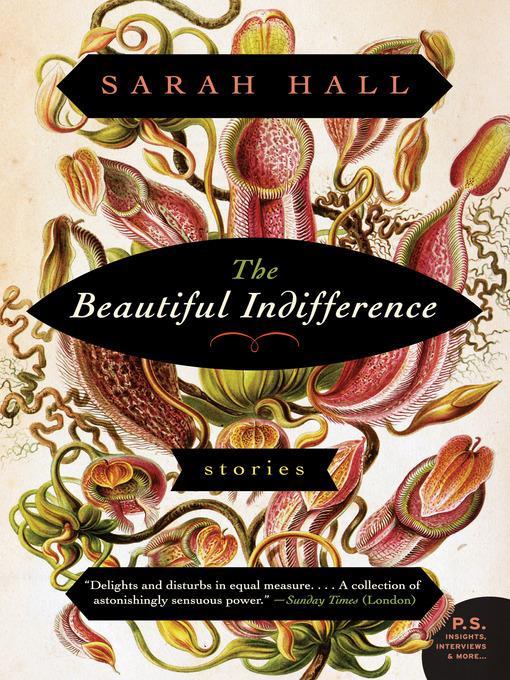
The Beautiful Indifference
Stories
کتاب های مرتبط
- اطلاعات
- نقد و بررسی
- دیدگاه کاربران
نقد و بررسی

December 17, 2012
In seven scenic stories, characters reflect on the tumultuous moments of their lives while away from home. When capturing the self-reflective morass that people face when making tough decisions, Hall is at her best. In the title story, an author on a weekend getaway waits for her younger lover in her hotel room. He’s late, giving her time to replay their history and recall past conversations and decisions. Too nervous to read, she comes to the conclusion that, despite being a writer, she dislikes books. “Reading was an affirmation of being alone, of being separate, trapped.” Characters in other stories echo this sentiment. In “She Murdered Mortal Me,” a relationship sours during a South African vacation. A woman leaves her jungle bungalow and a brewing fight to walk the beach, haunted by fears of abandonment and rumors of leopards in the trees. Such psychologically charged situations provide opportunities for Hall to venture into contrived oversentimentality; but she never does. Stories begin without preamble, in the middle of scenes, momentum already building. Hall is in complete control, playing with the reader’s expectations at every turn, mirroring the unmoored state her characters all inhabit. An unassuming, tightly woven debut collection. Agent: Clare Conville, Conville & Walsh (U.K.).

November 1, 2012
Seven stories populate award-winning English novelist (How to Paint a Dead Man, 2009, etc.) Hall's first collection. "Butcher's Perfume" is set up against the Scottish border, "burnt farm, red-river, raping territory," where motherless Kathleen falls in with the Slessors, a prosperous family with a "gipsy" mother. Intrigued by petite and blue-eyed, hard-bitten and combative Manda, Kathleen soon needs help from a brother, Aaron, who rights a wrong with a brutal fierceness. In the title story, an older-woman-younger-man couple meet for a tryst. The man is a doctor-in-training, and there are intimations the woman is mortally ill. Next comes "Bees," rendered in second person. A woman, disgraced by her husband's illegitimate child, leaves her beloved northland's "great heathered fells" to seek refuge with a London friend, lingering there unemployed, unemployable, contemplating a garden filled with dead bees. In "The Agency," a comfortable life, thriving children and a professorial husband are risked by a woman after a sophisticated friend introduces her to an elegant service willing to provide a companion "to meet all possible needs." Lovers take a vacation to an isolated African resort in "She Murdered the Mortal He." There is a fracture in the relationship, and frustrated, she walks to a nearby village, glimpsing "in a clean bolt of panic," a white shape trailing her. It is but a dog, a beast that later returns with a bloodied muzzle. Most affecting is "The Nightlong River," a story of north country girls shortly after the Great War. The land has been seized by winter so cold as to be an "inverse Eden." Magda is ill. Dolly attempts to help, learning in the end the dead leave us in "the solid world upon which we find ourselves, and in which we reign." The collection concludes with "Vuotjarvi." A couple vacation at a remote Finnish lake, and on an idyllic summer outing, the man attempts to swim to an island and disappears. Visual and vibrant. Literary and lyrical.
COPYRIGHT(2012) Kirkus Reviews, ALL RIGHTS RESERVED.

February 1, 2013
Author of the Man-Booker-shortlisted The Electric Michelangelo, Hall weaves together elements of gothic horror, futuristic sf, and the British tradition of murder ballads to create a strikingly original voice full of lyric intensity. The animal nature of human longing lies at the heart of this collection, as does the connection between physical abandon and actual or imagined loss. In one story, a woman hurt by her lover's declaration that something is wrong in their relationship loses her way when walking near the ocean; in another, again in a remote setting near the water (this time in a village in Finland), a woman whose mind continually wanders into memories of blissful lovemaking realizes that her lover has not returned from a swim in the lake. Other stories involve minks and their pelts, dead bees in a garden ("still, fossil-looking things"), and the revelation of horse butchery, among other grisly scenes. VERDICT Hall's work, like that of Joyce Carol Oates and Patricia Highsmith, uses the conventions of genre fiction to great advantage, presenting the dangers to which we cannot help but expose ourselves simply by being human.--Sue Russell, Bryn Mawr, PA
Copyright 2013 Library Journal, LLC Used with permission.

December 1, 2012
Something unexpected from Sarah Hall (The Electric Michelangelo, 2005; How to Paint a Dead Man, 2009): a collection of short, realistic (mostly), contemporary stories. Hall's women are cheated on, broken up with, sick, bored, lonely; and her writing pulls the reader into subtly rendered but deeply felt worlds. From a young outcast taken in by a wild, local family to a housewife who secretly joins a sex club, the stories show off a mastery of a wide variety of tones and voices. All but two of the seven stories take place in England, and Hall stretches her chops as she goes further afield. An encounter with a stray dog on an African beach becomes a possibly-paranormal revenge story; a swim in a Finnish lake becomes an edgy nightmare. The strongest story in the collection, The Nightlong River, evokes a historical, rustic north of England and the loneliest act of friendship you'll ever read. American readers who cut their teeth on Joyce Carol Oates' Where Are You Going, Where Have You Been? (1993) will want to give this collection a try.(Reprinted with permission of Booklist, copyright 2012, American Library Association.)

























دیدگاه کاربران